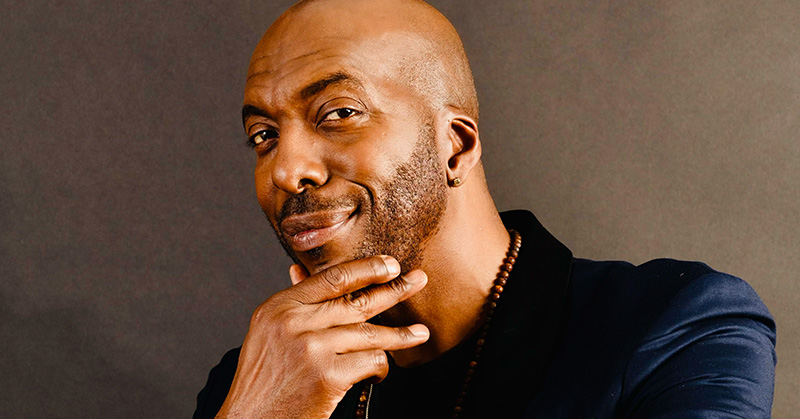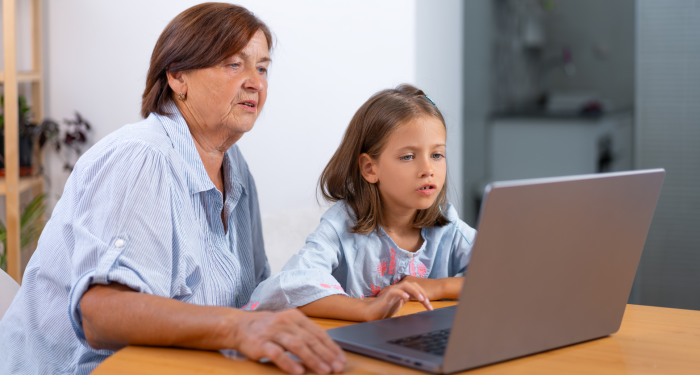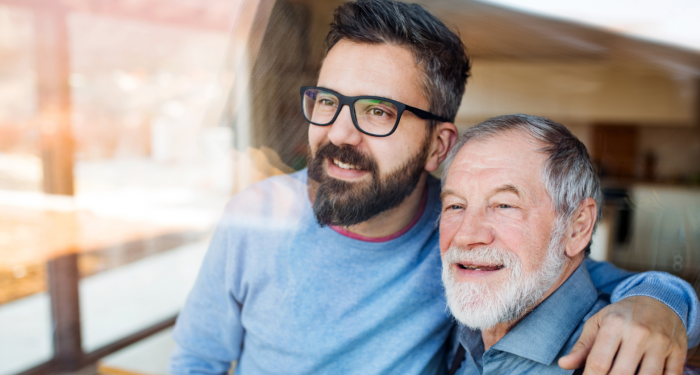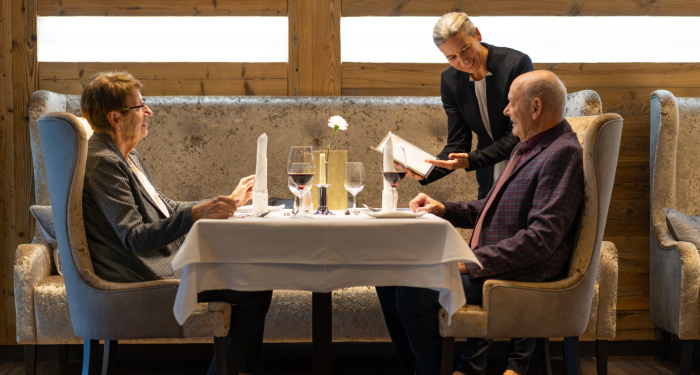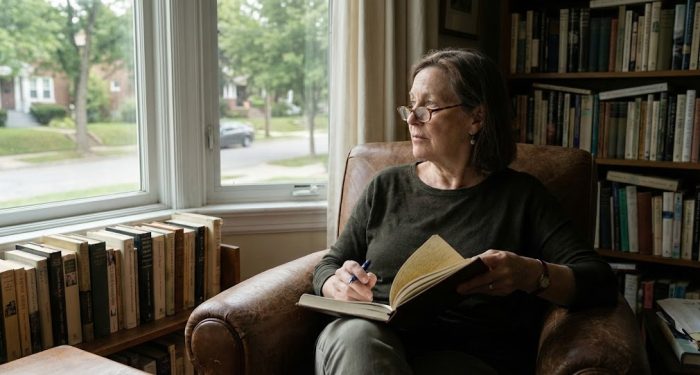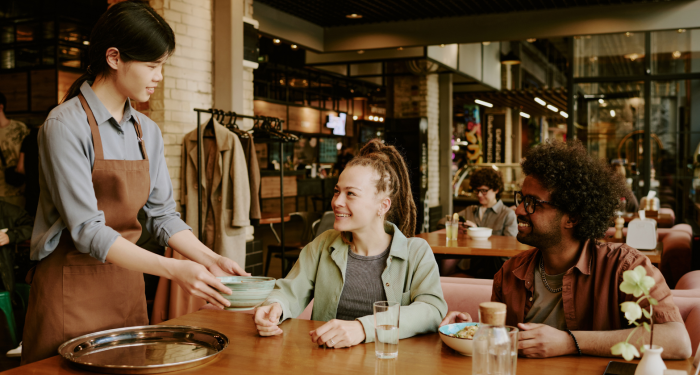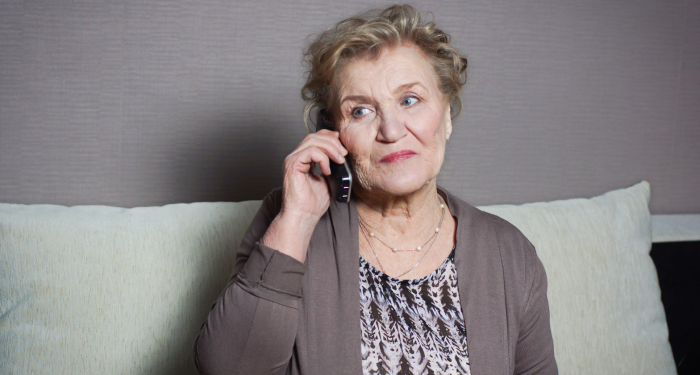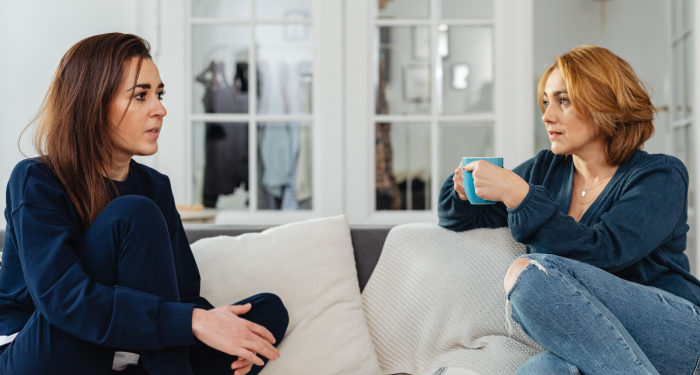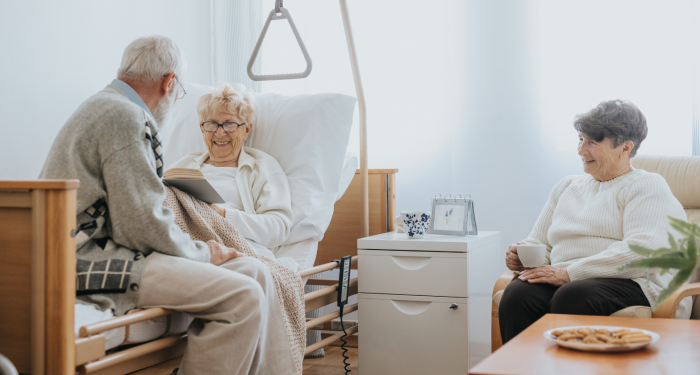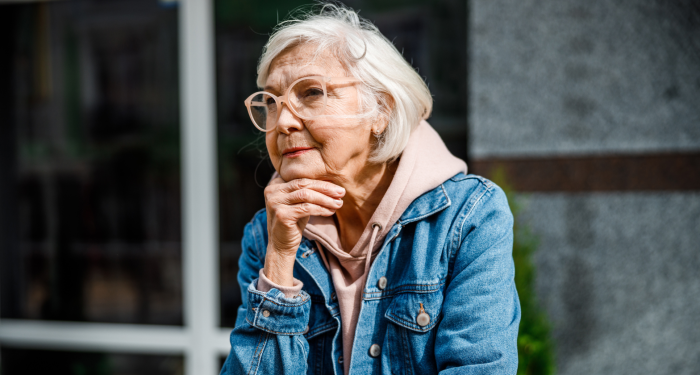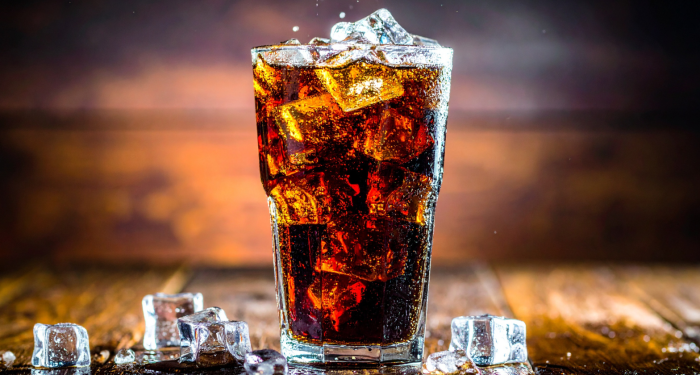If you aren’t already a fan of John Salley, you will be after reading this interview!
Standing at 6’11”, former Detroit Pistons “bad boy” John Salley may seem intimidating, but IRL, he’s a down-to-earth, compassionate vegan with dedication and drive like no other. After playing with five NBA teams, Salley went on to host TV shows like The Best Damn Sports Show Period, act in films (most recently, Disney’s Sneakerella), speak at vegan festivals, and partner with several vegan businesses. Keep reading to learn how John Salley went from winning NBA championships to running a vegan empire and starring on the big screen!
VegOut (VO): When and why did you first transition to a plant-based diet?
John Salley (JS): It was in 1991. Dr. Jewel Pookrum said, “You’re full of sh*t.” I said, “Excuse me?” She said, “Literally, you’re full of sh*t. So we’re gonna start by giving you a colonic, and then we’re gonna change what you eat.” From 1991 to around 2007, I was a lying vegetarian. I ate mostly vegetarian and macrobiotic but I still had foods like turkey burgers and cheese.
VO: So you officially went vegan in the 2000s. What led you to that decision?
JS: As PETA and Mercy For Animals brought me in [for PSAs and promotional videos], I talked about [veganism] all the time—“These guys gotta stop eating steak, they gotta stop eating cheeseburgers”—but I was still eating turkey burgers. One time, I did a PSA for PETA and my friend and assistant said, “The food in the back is off the chain!” I went back there and started grubbing, and the PETA team told me it was all vegan. That day, I went home and told everyone I went vegan.
VO: Did you notice a difference in your performance on the court when you made the change to a vegan diet?
JS: I went from 235 pounds with pimples on my head, smelly feet, lower back pain, knee pain, and a bad attitude to 219 pounds, and I was running faster, jumping higher, my face cleared up, my body odor was gone—everything was different.
VO: What inspired you to start experimenting in the kitchen with vegan recipes? Do you have any favorites you can share with us?
JS: My mother was a kosher caterer who was born in 1923. Almost everything I had growing up was from scratch, and I always liked cooking. When I went vegan, I had to [cook] because there was nothing out there, and to me, the vegan food tasted like styrofoam with barbecue sauce. I like to make Bolognese, penne arrabbiata, pasta with cheese, and a kale salad. My kale salad takes me an hour. I literally pull all of the veins out, then I massage it and add a champagne vinaigrette made with balsamic vinegar, moringa, turmeric, guanabana, carrots, white onion, and a little grapeseed oil.
VO: You get so many comments about how young you look. How do you respond?
JS: When you buy a car, you don’t expect it to get fat. You don’t expect the tires to give out. Some color maybe, you may have a dent. Your body is not going to change. So that’s the way I look at it. This is a race car, and I keep it a race car.
VO: How has your approach to spreading veganism changed over the years?
JS: I realized that if you wake people up and shake them hard, they get mad. But if you gently wake them up and give them something to taste, they’re more open. So I started waking up people nicely. First I started as a preacher, then a teacher, then a sage.
VO: After you left the NBA, you got into TV hosting and acting. How did those ventures come about?
JS: In ‘89, I started on television. Magic used to laugh and say, “This has been John’s plan!” Because I used to tell him, “I’m gonna play in the NBA and become famous and then I’m gonna go on TV and be like Johnny Carson.” In ‘97, I started doing sitcoms and was like, “Well, I already did Bad Boys and Eddie, I think I’m gonna act.” Because I always wanted to. So I started acting. And then I got on NBC talking about sports. After that, I got The Best Damn Sports Show Period.
VO: You have quite the resume now! What was it about acting that fascinated you so much?
JS: Growing up, going to the movies was my thing. And when I was playing in the NBA, to stop me from going out, I would go to acting class. I had one of the greatest acting coaches, Ivana Chubbuck. I’d sit next to her every Wednesday. The more I worked on the craft, the more respect I had for it. I love the process.
VO: Most recently, you announced that you’re creating your own show. What inspired that?
JS: I just kept realizing that I was always getting a show, and not getting a show. Getting a movie, and not getting a movie. I don’t want to do that anymore. At this time, this show I’m making is an NFT and it’s a hell of a shot but it’s my chance to make the show I want to make.
VO: You're currently involved in several amazing vegan businesses and organizations. What are they and how did the opportunities come about?
JS: When I started as a born-again vegan, I got into The Vegan Vine and learned the wine business. Through that, I worked with a vegan cheese company from Greece and started speaking at vegan festivals all over the country, [first] at VegFest in Michigan. We went from being inside a junior high school to being in a convention center. When I did the PSA for PETA, they told me about this vegan restaurant in Tarzana called Madeleine Bistro—I lived literally a mile away from it. That’s how I met Dave Anderson of Beyond Meat, [which I joined as an original investor in 2009]. In 2020, [the Cafe Organix team] came to me and asked me to [join their founding team and] check out this location they were looking into. I drove up and the address was 420 E. Hospitality Lane, and I said, “Take it!” In 2020, PETA gave me the Humanitarian Award, and they put me with Maya from Maya’s Cookies. Maya said, “I think you can help me.” Six months later, we got the contract, [and now I’m working with them as an advisor.]
VO: You also co-own the cannabis brand Deuces22 with your daughter, Tyla Milan. How did that come about? And what’s it like to run a business with your daughter?
JS: She’s one of the smartest people I’ve ever met—and I’ve met a lot of people. She told me, "If you want to invest in my future, college is going to cost thousands of dollars. We should put that into what I really want to do.”
VO: What is something you wish more people knew about being a business owner?
JS: Everyone talks about money. Money is not an obstacle. You don’t need money to start a business—you need an idea. The idea has to be worth your energy and time. If it's a good idea, people will give you the money.
VO: Is there anything else you’d like to share with our readers?
JS: Watch the John Salley Crypto Show!
To stay updated on John Salley’s happenings, visit JohnSalley.com, JohnSalleyCryptoShow.com, and follow @johnsalley on Instagram.

